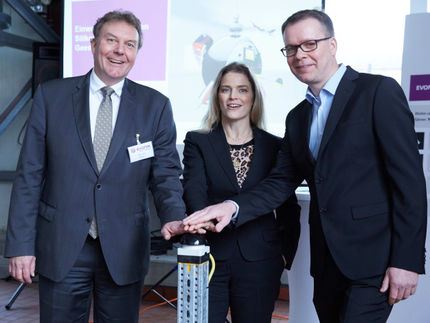Silicone specialities: WACKER builds new production site in the Czech Republic
The investment volume is in the low triple-digit million-euro range
Wacker Chemie AG strengthens its focus on silicone specialties in Europe with the construction of a new production site. The chemical company, together with project partners and officials representing the city and the region, broke ground symbolically in Karlovy Vary, Czech Republic. From the end of 2025, WACKER will produce room-temperature curing high-performance silicones and from 2028 high consistency silicone rubber in Karlovy Vary. These silicones are used in key technologies such as electromobility, health and medical care and in grid expansion. The investment volume is in the low triple-digit million-euro range. 200 new jobs will be created in the first expansion phase. With the construction of a new site for silicone specialties, the WACKER Group is once again expanding its position as a solution provider for customers in key industries.
“Karlovy Vary will be a new and important pillar for our silicone activities in Europe and will strengthen our position as a leading manufacturer of silicone specialties. With today’s groundbreaking ceremony we’ve achieved our first milestone,” said Executive Board member Christian Kirsten addressing guests from politics and business. “Our silicone rubber grades are in demand in all key growth markets. As an expert in silicones, we can offer precisely the solutions that our customers need to develop innovative products and technologies,” stated Kirsten.
Customized silicone elastomers are especially needed where conventional materials cannot or can no longer meet the high and ever-increasing requirements. The main drivers are megatrends such as electromobility, renewable energies and the expansion of electricity grids. “In order to be able to meet the growing demand for such solutions in the long term, we need to lay the necessary groundwork now,” noted Kirsten. “With Karlovy Vary we are now beginning a new chapter in our silicones’ success story.”
The new site complements WACKER’s existing integrated production sites in Burghausen and Nünchritz, Germany. The company is thereby creating important prerequisites for further optimizing its production processes. “Our integrated production setup in Europe will be even more flexible with Karlovy Vary. It will enable us to serve our customers both in Europe and elsewhere even better,” said Kirsten.
The new site in Karlovy Vary will focus on the production of room-temperature-curing specialty silicones. Later, high-temperature-curing silicone compounds will also be produced there. In total, WACKER will invest a sum in the low triple-digit million euro range in Karlovy Vary and create around 200 jobs by 2028. Further personnel requirements in later years are also on the cards. When fully operational, the site will be able to supply over 20,000 metric tons of custom-made silicones per year. First production quantities are expected by the end of 2025.
Of the many production sites under consideration, Karlovy Vary in the Czech Republic made the grade. In the weeks and months ahead, the 23,000 square-meter building including infrastructure will be erected. WACKER is cooperating with the U.S. real estate developer Panattoni, which is coordinating the construction work, and the Czech real estate group Accolade, which owns the property and the building.
Karlovy Vary offers the ideal conditions for WACKER’s silicone production. “Its proximity to Burghausen and Pilsen, the region’s relatively low energy costs, and the availability of qualified staff made the decision very easy for us in the end,” said Kirsten.
Most read news
Other news from the department manufacturing

Get the chemical industry in your inbox
By submitting this form you agree that LUMITOS AG will send you the newsletter(s) selected above by email. Your data will not be passed on to third parties. Your data will be stored and processed in accordance with our data protection regulations. LUMITOS may contact you by email for the purpose of advertising or market and opinion surveys. You can revoke your consent at any time without giving reasons to LUMITOS AG, Ernst-Augustin-Str. 2, 12489 Berlin, Germany or by e-mail at revoke@lumitos.com with effect for the future. In addition, each email contains a link to unsubscribe from the corresponding newsletter.




























































